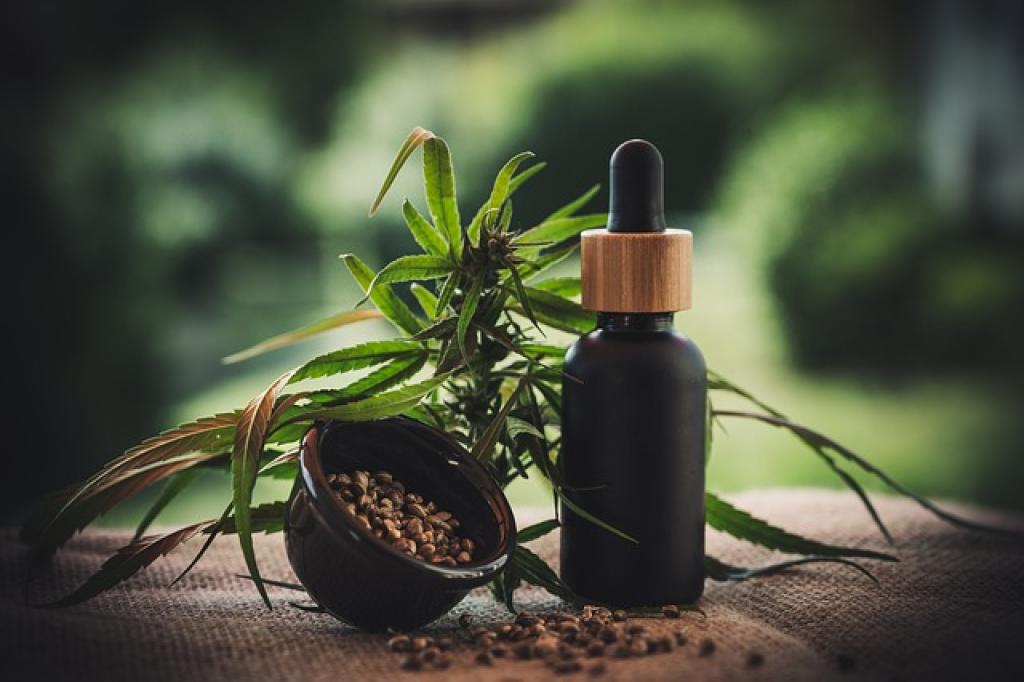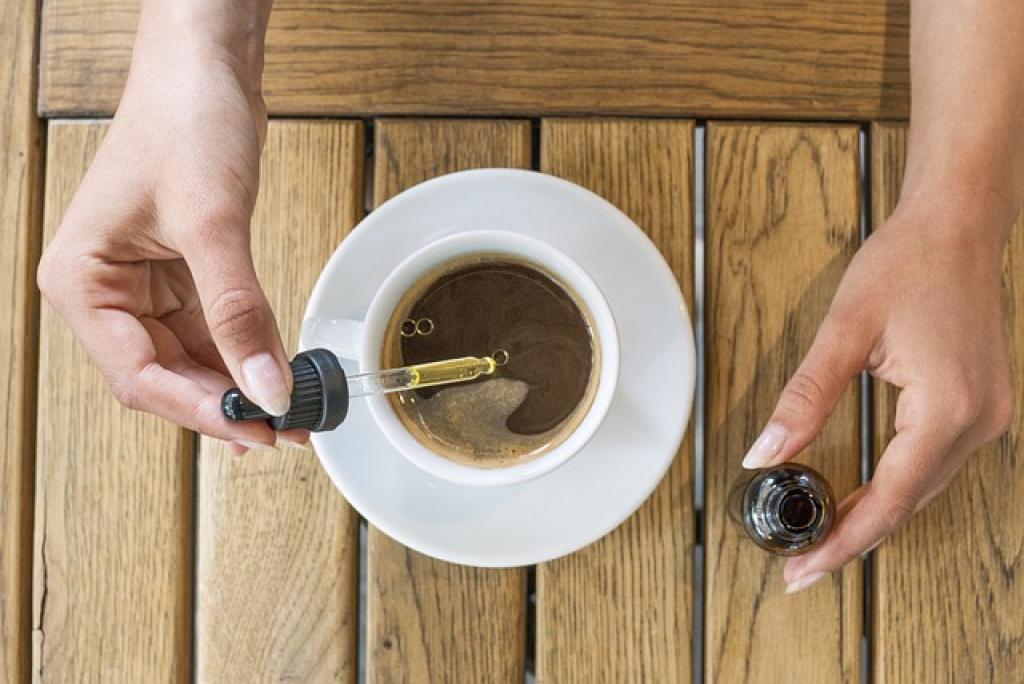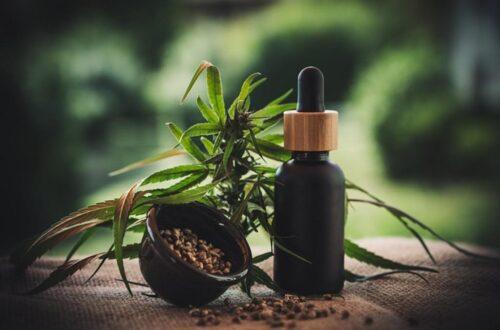Have you ever wondered if your body could get used to CBD, making it less effective over time? It’s a common question many people have as they start and continue their journey with CBD products.
Understanding how tolerance works is key to maximizing the benefits you get from CBD. While it’s typically associated with things like medications and caffeine, it’s also important to consider how your body might respond to regular CBD use.
In this blog post, we’ll dive into what tolerance means in the context of CBD, how it might affect you, and what you can do about it. It’s all about finding that sweet spot where you can continue to enjoy the potential benefits CBD has to offer.
So, whether you’re new to CBD or have been using it for a while, let’s explore how tolerance plays a role in your experience.
Understanding the Concept of Tolerance in CBD Usage
Tolerance is when your body gets used to a substance, sometimes requiring more of it to achieve the same effect. This concept isn’t limited to caffeine or medications; it can apply to CBD as well.
When you first start using CBD, your body might respond strongly to even small doses. Over time, as your endocannabinoid system gets used to the compound, you may notice the effects becoming less pronounced. This is what’s known as building a tolerance.
But don’t worry, it’s not the end of the world! The good news is that CBD tolerance isn’t just black and white. Some people may never develop a significant tolerance, while others might.
Interestingly, CBD is different from THC, the compound in cannabis that gets you high. THC users often find their tolerance building up quickly. With CBD, the process is generally slower and might not be as noticeable.
Understanding this can help manage how you use CBD for the best results. It’s all about listening to your body and adjusting your usage as necessary. Sometimes, taking short breaks can help reset your tolerance, allowing you to enjoy CBD’s benefits more effectively.

Factors Influencing Tolerance Levels in CBD Consumers
Several factors can influence how quickly or slowly you build a tolerance to CBD. Let’s break down a few of the most common ones.
First up is frequency of use. Like with most substances, the more frequently you consume CBD, the higher the likelihood of building a tolerance. Regular daily use might lead to quicker adaptation compared to occasional use.
Another key factor is dosage. Higher doses of CBD can also contribute to quicker tolerance development. Starting with a lower dose and gradually increasing it, if needed, can help manage this.
Body weight and metabolism also play a role. People with higher body weight or a faster metabolism might process CBD differently, affecting tolerance levels. Your body’s unique chemistry is a significant factor here.
Lastly, individual biochemistry varies from person to person. Just like how some people can drink coffee all day without jitteriness while others can’t handle more than a cup, your internal makeup will influence how you respond to CBD.
Keeping these factors in mind can help you better understand and manage your CBD usage and tolerance. Everyone’s CBD journey is different, so it’s important to listen to your body and adjust accordingly.
Recognizing Signs of Tolerance in CBD Users
So, how can you tell if you’re building a tolerance to CBD? There are a few signs to watch out for, and they’re often pretty straightforward.
One of the most common signs is a diminished effect. If you’ve been using CBD and suddenly find that it’s not as effective as it used to be, this could be an indication of tolerance. Maybe the relief you once felt isn’t as pronounced anymore.
Another sign to look out for is the need for higher doses. If you find yourself gradually needing to take more CBD to achieve the same effects, that’s another classic sign of tolerance building up.
You might also notice increased frequency of use. If you catch yourself reaching for your CBD more often than you used to, it could mean that your body is getting used to its effects and requiring more frequent doses.
Lastly, be aware of a shorter duration of relief. If your CBD benefits don’t last as long as they previously did, that’s another red flag for growing tolerance.
Recognizing these signs early can help you adjust your CBD routine before your tolerance builds up too much. It’s all about staying in tune with your body and making small tweaks as needed.
Strategies to Manage Tolerance When Using CBD
Alright, let’s talk about what you can do if you think you’re developing a tolerance to CBD. Luckily, there are several strategies to help you manage this and continue to enjoy the benefits of CBD.
1. Take a CBD Break
One effective approach is to take a tolerance break, often called a “CBD holiday.” Just stop using CBD for a few days or even a week. This gives your body time to reset and can help reduce the tolerance you’ve built up.
2. Adjust Your Dosage
Another strategy is to lower your dose instead of increasing it. This might sound counterintuitive, but sometimes using less can actually help you maintain your body’s sensitivity to CBD’s effects.
Mix Up Your Consumption Methods
Sometimes, simply changing how you take your CBD can make a difference. If you’ve been using CBD oil, try switching to edibles or vaping. Different methods can have varying impacts on your system.
3. Rotate with Other Cannabinoids
Consider incorporating other cannabinoids, like CBG or CBN, into your routine. They can offer similar benefits and might help keep your tolerance in check.
4. Be Consistent Yet Flexible
Finally, consistency is key but also be flexible with your approach. Keep a journal of your CBD usage, how you feel, and any changes you notice. This can help you identify patterns and make adjustments as needed.
By following these strategies, you can effectively manage and even prevent CBD tolerance, ensuring you get the most out of your experience.
Exploring Potential Risks of Tolerance Development with CBD
While CBD offers a range of benefits, developing a tolerance can come with some risks you should be aware of. Understanding these potential downsides can help you make informed decisions about your CBD use.
First, if you develop a tolerance, you might find yourself needing higher doses to achieve the same effects. This can be costly over time. Plus, there’s limited research on the long-term impacts of high-dose CBD usage, so it’s wise to proceed with caution.
Another risk is the possibility of reduced effectiveness. If CBD stops working for you because of tolerance, you might miss out on the relief you previously experienced, whether it’s for anxiety, pain, or sleep.
In some cases, tolerance can also lead to frustration or even stress. Imagine relying on CBD for your wellness routine only to find it less effective. The inconsistency can be unsettling for some people.
Besides this, there’s a risk of your body becoming more dependent on CBD for maintaining balance. While not the same as addiction, it can still lead to a cycle where your body expects the compound to function optimally.
Lastly, tolerance might drive you to seek out alternative solutions, which may not always be the best or safest options. Diversifying your approach to wellness is great, but doing so out of necessity rather than choice can limit your options.
Understanding these potential risks allows you to be proactive about managing tolerance. This way, you can continue benefiting from CBD in a balanced, effective manner.
Myth Busting: Common Misconceptions About Tolerance and CBD
There are a lot of myths floating around about CBD and tolerance. Let’s clear the air by busting some of the most common misconceptions.
One of the biggest myths is that everyone will develop a tolerance to CBD. The truth is, not everyone experiences this. Some people can use the same dose for extended periods without any loss in effectiveness.
Another misconception is that tolerance to CBD means it’s no longer working at all. In reality, tolerance may mean you need a slightly higher dose, but it doesn’t necessarily mean all benefits vanish.
Some folks believe that increasing tolerance to CBD implies developing an addiction. This is not the case. CBD doesn’t have the addictive properties found in some other substances. Tolerance and addiction are two very different things.
You might also hear that taking breaks from CBD will reset your tolerance overnight. While taking breaks might help lower tolerance over time, it’s not an instant fix. The body needs time to adjust, and this process varies from person to person.
There’s also a myth that once you develop a tolerance to CBD, there’s no point in using it anymore. On the contrary, many people continue to benefit from CBD even if they need to adjust their dose occasionally.
Understanding these myths can help you make better decisions regarding CBD use and tolerance. So, don’t let misunderstandings steer you away! Stay informed, and you’ll find what works best for you.
How Incorporating CBD Tolerance Awareness Can Enhance Your Wellness Journey
Understanding CBD tolerance can truly transform your wellness journey. When you’re aware of how your body interacts with CBD, you’re better equipped to tailor your approach.
First, start by keeping a CBD journal. Document your doses, how you’re feeling, and any changes you notice. This record can help you spot patterns and make informed adjustments.
Another key benefit is avoiding unnecessary frustration. Knowing about tolerance means you won’t be caught off guard if your usual dose seems less effective. You can tweak your routine calmly and effectively.
Listening to your body is crucial. If you sense that your tolerance is building, consider taking a break or adjusting your dosage. Remember, it’s about finding what works best for you, not about following a strict regimen.
Incorporating tolerance awareness can also help you maintain a sustainable relationship with CBD. It’s all about balance and recognizing when your body might need changes. This mindfulness can enhance the overall benefits you experience.
Finally, being aware of tolerance can help you set realistic expectations. You’ll know that changes in effectiveness are normal and manageable. With this knowledge, you can continue to enjoy the positive impacts of CBD without unnecessary worry.
By simply staying informed and attentive, you can ensure that CBD remains a valuable part of your wellness toolkit, enhancing your journey towards better health and balance.
The Bottom Line: Navigating Tolerance in CBD Consumption
In summary, being mindful of how your body builds tolerance to CBD can significantly enhance your wellness journey. It’s not just about finding the right product or dosage but also about understanding how your body responds over time.
Monitoring your CBD intake and body’s reactions will help you make smart adjustments when needed. This can involve maintaining a journal, listening to your body’s cues, or even consulting with a healthcare professional for tailored advice.
Taking breaks or adjusting your regimen when tolerance develops can help maintain CBD’s effectiveness. Remember, it’s a journey; periods of trial and error are perfectly normal. These adjustments ensure that your relationship with CBD remains positive and beneficial.
Transparency is crucial. By acknowledging that tolerance can occur, you set realistic expectations for your CBD experience. This awareness can help you avoid frustration and make more informed decisions about your wellness.
Ultimately, the goal is to balance understanding with action. By being proactive about tolerance, you can continue to enjoy the benefits of CBD, whether for stress relief, pain management, or another wellness goal.
So, stay informed, listen to your body, and adjust as needed. By doing this, you’re well on your way to making CBD a sustainable and effective part of your health and wellness routine. Happy wellness journey!






